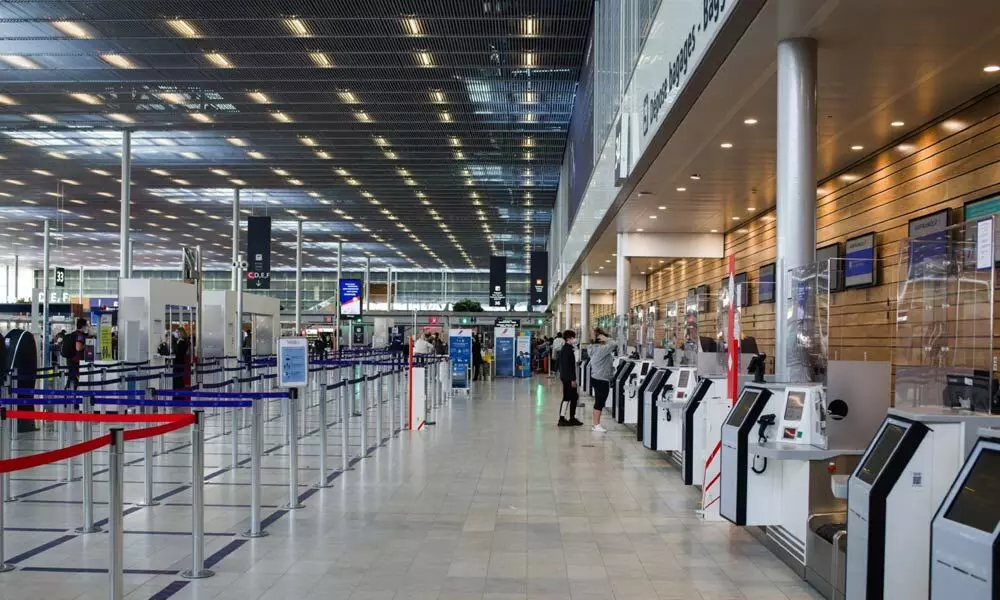$48-bn loss for airlines as Covid bites
While optimism for the second half hinges mainly on the continuing rebound of large domestic markets like the US and China, Walsh said he’s a little more upbeat about Europe than IATA’s official projections
image for illustrative purpose

New travel bans, crubs arising from outbreaks in India and Brazil will hit the sector
Bloomberg: The airline industry's chief lobby group widened its estimate for losses this year by about a quarter, saying new Covid-19 flare-ups and mutations have pushed back the timeline for a restart of global air travel.
Carriers will lose about $48 billion in 2021, the International Air Transport Association said Wednesday in an online presentation. It had earlier forecast a $38 billion deficit.
"This crisis is longer and deeper than anyone could have expected," said Willie Walsh, the former chief of British Airways owner IAG SA, who's now IATA's director general. "Losses will be reduced from 2020, but the pain of the crisis increases."
The downward pivot comes as airlines contend with new travel bans and restrictions arising from outbreaks in large aviation markets such as India and Brazil. Governments of countries that have ramped up vaccinations most quickly have become cautious about restarting travel to prevent the import of new variants that could prove resistant to jabs.
This week, the US State Department said it would declare about 80 per cent of the world's nations no-go zones. In Europe, the UK has held off on confirming a plan to restart travel in mid-May, saying it will decide closer to the date. While some countries are starting to open up to vaccinated tourists, progress toward so-called vaccine passports has proven slow and complex.
Hopes dashed
After the industry lost about $126 billion in the teeth of the crisis during 2020, there were high hopes for a rebound in air travel during the first half of this year. IATA now says the crucial summer season is at risk.
Demand will reach 43 per cent of 2019 levels during 2021 - a more optimistic outlook than issued in February, but less bullish than in December, when vaccines were first being rolled out. At that time IATA saw traffic this year recovering to about half of pre-pandemic levels. Industry break even, previously expected in the fourth quarter, will now be delayed into 2022.
In the US, investors have turned sour on the chance of a quick recovery in aviation, sending a Standard & Poor's index of major airlines to 10 straight days of declines this month, the longest streak since at least 1989. In Europe, trans-Atlantic specialist Virgin Atlantic Airways Ltd. said Wednesday that it won't get its fleet fully back in the air until October or November.
Regional highlights of the IATA forecast:
• North American carriers are best placed to take advantage of rapid vaccination programs because of the large domestic US market. Losses lowest globally as a proportion of revenue
• Testing and increasing the pace of an unsteady vaccine roll-out are key to the recovery of the struggling European market. Losses will be reduced at the slowest rate in this region
• Asia-Pacific carriers see 45 per cent of traffic coming from domestic markets, driven by Chinese market recovery, together with booming cargo sector
• Middle Eastern demand will benefit from high vaccination rates in home markets, offset by continued travel restrictions on routes to emerging economies served through Gulf hubs
The new estimates assume a partial reopening of some markets in Europe in time for summer flying, and also of some trans-Atlantic services, IATA Chief Economist Brian Pearce said. These routes should be fully open in the fourth quarter, with more than 75 per cent of relevant populations vaccinated, he said.
While optimism for the second half hinges mainly on the continuing rebound of large domestic markets like the US and China, Walsh said he's a little more upbeat about Europe than IATA's official projections. Testing of the group's Travel Pass app is continuing with more than 50 airlines signed up.
Christopher Jasper & Siddharth Philip

